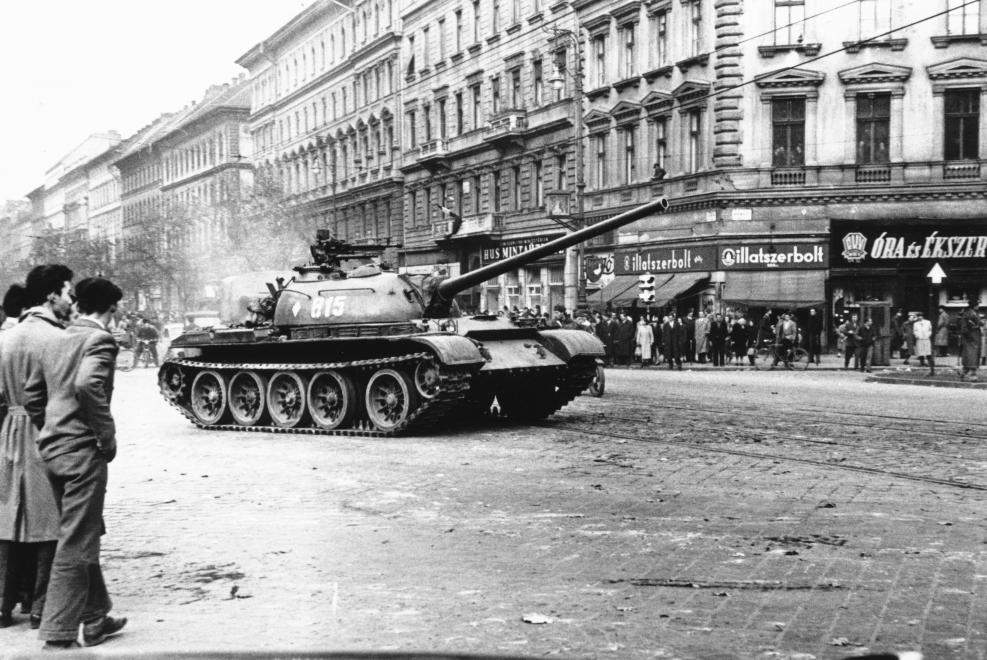Jobbik MEP Gyöngyösi: Washington’s global role is at stake in the US elections
Remarks from Jobbik MEP Márton Gyöngyösi:
In just a few days, US citizens decide who will lead their country in the next four years.
The stakes have always been enormous for each and every presidential election as the US’ fate has been closely intertwined with that of its allies as well as its enemies or rivals ever since World War 2. It has been especially so since the end of the cold war and the bipolar world order, when the US remained in the arena as the sole economic, military and geopolitical superpower. This status comes with a special responsibility.
At a superficial glance, this presidential election might look similar to all previous votes where the Republican and the Democratic candidates of the traditional bipolar political culture duelled for public support. However, this election is about something else, something significantly more than just the programme-based debate and competition of two candidates.
This time US citizens will also express with their votes how they view their own nation, their values achieved and retained over the centuries as well as how they relate to the rest of the world.
At the threshold of a new era, voters need to do much more than just elect the leader most aligned with their ideological preferences. This time their priorities lie somewhere else: they need to choose between different systems, regimes and worlds now. This election is about whether Washington remains the leader of the very same free world the creation of which was largely due to the US and the direction of which was determined by the rule of law, the achievements of liberal democracy, value-driven foreign policy and the international institutions of cooperative multilateralism.
Back during the 2016 US presidential election, you could already feel the wave of international populism which involved more and more politicians defining themselves as opposed to liberal democracy and which can consequently be described as “illiberal”. At that time, Europe had already gone six months after such events as the UK’s Brexit referendum to leave the EU and Viktor Orbán forming another two-thirds majority government following a constitutional coup d’état unprecedented in the western world since Germany of the 1930s. The Hungarian prime minister’s acts laid the foundations for his “hybrid regime” which, while maintaining the façade of existing but dysfunctional democratic institutions, serves as the new measure of “illiberalism”. This means that the values of the western civilization are no longer questioned by just such external regimes as Turkey, Russia, China or Iran. Now the cracks appear within the alliance, carrying the risk of blowing up the “status quo”.
Four years ago, an average Trump voter could say in their defence that they voted for a genuine novelty candidate to express their discontent with the representatives of the truly irritating in-bred political dynasties often seen in both the Democratic and the Republican Party.
In addition, Trump voters could also believe that such factors as the US Constitution, the perfectly honed mechanism of checks and balances and the American media’s unparalleled pluralism would provide an impenetrable defence from any abuse of power or the threat of “illiberalism”.
After Trump’s first four years however, there’s no place for such naiveté. The first four years have clearly shown what to expect in the second term. Under Trump’s leadership, the US has unilaterally withdrawn from several of its international commitments, including the Paris climate agreement or many free trade agreements while its dedication to NATO has been questioned by some of its allies. US-China relations are typically marked by permanent tensions in trade and economic issues, while the relations with Russia are characterized by a complete and utter ambivalence.
As far as foreign affairs are concerned, Washington is apparently less and less inclined to conduct a value-based policy or play a leading role as the defender of freedom, human rights and democratic values across the world.
The current isolationist and self-serving “America First” doctrine of Trumpism goes against the US’ traditional global commitment which the country has, for better or worse, represented consistently ever since its foundation.
On 3 November, the stakes of the elections will be high: beside America’s future, the fate of the post-war liberal world order hangs in the balance, too.

Read alsoJobbik MEP Gyöngyösi: The message of 1956 is still valid
Source: www.gyongyosimarton.com
please make a donation here
Hot news
PM Orbán’s cilling warning: NATO is sliding into the war
VSquare: PM Orbán’s only son, Captain Gáspár, may be creating new Hungarian super secret service
Hungarian universities still exluded from the Erasmus+ programme
Manhunt begins: 7 foreign citizens caused a fatal accident on Budapest Airport road
Here is how Former PM Gyurcsány’s party wants to unseat PM Orbán
Astonishing VIDEO and PHOTOS of Budapest Airport’s ‘secret, silent’ Terminal 1




